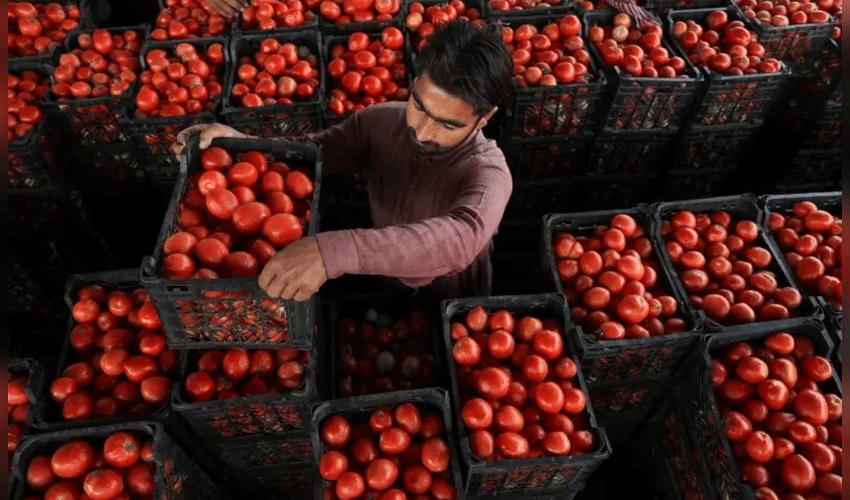Asia In News
Tomato Prices in Pakistan Surge Over 400 percent Amid Afghanistan Border Shutdown

Tomato prices in Pakistan have skyrocketed by over 400%, reaching approximately 600 Pakistani rupees (about $2.13) per kilogram, largely due to the closure of the country's border crossings with Afghanistan. This dramatic price hike comes in the wake of serious clashes along the Pakistan-Afghanistan border that erupted earlier this month, leading to a shut down of all trade routes between the two neighbors. The closure has disrupted the flow of essential goods, including fresh produce like tomatoes, apples, and grapes, which are crucial for both countries' markets and diets.
The conflict triggered by security concerns—Pakistan accused Afghanistan's Taliban government of harboring militants launching attacks across the border, which Kabul denies—has ended in a ceasefire. However, despite the ceasefire, the border remains closed, and trade has come to a halt, causing significant shortages. As a result, many agricultural goods that were supposed to cross the border are rotting in containers. Reports estimate about 5,000 containers full of perishable goods are stuck on both sides, with approximately 500 containers of vegetables per day spoiling now.
This blockade not only impacts the availability of tomatoes but also affects broader trade worth around $2.3 billion annually, covering fruits, vegetables, medicines, wheat, rice, sugar, meat, and dairy products. Pakistani consumers are feeling the pinch as local tomato supplies dwindle and imports from Afghanistan have ceased, pushing prices to unprecedented highs. This situation echoes past trends where cross-border trade played a role in stabilizing prices, especially for perishables. Historically, when local production fell short, imports helped bridge the supply gap, but now the closure has intensified inflationary pressures on everyday essentials.
The economic fallout is shared by both nations, with daily losses estimated at around $1 million due to halted trade. While talks are ongoing with a fresh round scheduled in Istanbul, the market dynamics remain severely strained, leaving Pakistani households grappling with soaring food prices. This disruption of the supply chain highlights the vulnerabilities of regional trade dependencies and the broader impact geopolitical conflicts can have on ordinary citizens' cost of living.



